-
 Bitcoin
Bitcoin $118900
-2.33% -
 Ethereum
Ethereum $4288
-0.13% -
 XRP
XRP $3.151
-3.21% -
 Tether USDt
Tether USDt $1.000
0.02% -
 BNB
BNB $809.5
-1.17% -
 Solana
Solana $175.7
-4.75% -
 USDC
USDC $0.0000
0.01% -
 Dogecoin
Dogecoin $0.2246
-5.75% -
 TRON
TRON $0.3473
2.19% -
 Cardano
Cardano $0.7809
-5.18% -
 Chainlink
Chainlink $21.38
-3.48% -
 Hyperliquid
Hyperliquid $43.29
-5.53% -
 Stellar
Stellar $0.4375
-3.21% -
 Sui
Sui $3.685
-6.68% -
 Bitcoin Cash
Bitcoin Cash $595.2
3.50% -
 Hedera
Hedera $0.2483
-6.60% -
 Ethena USDe
Ethena USDe $1.001
-0.01% -
 Avalanche
Avalanche $23.03
-5.28% -
 Litecoin
Litecoin $119.5
-5.02% -
 Toncoin
Toncoin $3.395
-0.07% -
 UNUS SED LEO
UNUS SED LEO $9.007
-1.19% -
 Shiba Inu
Shiba Inu $0.00001304
-5.44% -
 Uniswap
Uniswap $11.35
1.57% -
 Polkadot
Polkadot $3.898
-5.43% -
 Cronos
Cronos $0.1671
-0.16% -
 Ethena
Ethena $0.8121
-2.45% -
 Dai
Dai $1.000
0.02% -
 Bitget Token
Bitget Token $4.412
-1.73% -
 Monero
Monero $264.0
-0.64% -
 Pepe
Pepe $0.00001128
-8.12%
Which is better, currency-to-crypto margin trading or contract trading?
Currency-to-crypto margin trading allows traders to leverage their positions, enabling larger trades and potentially amplifying returns, while requiring careful risk management.
Dec 16, 2024 at 11:21 am
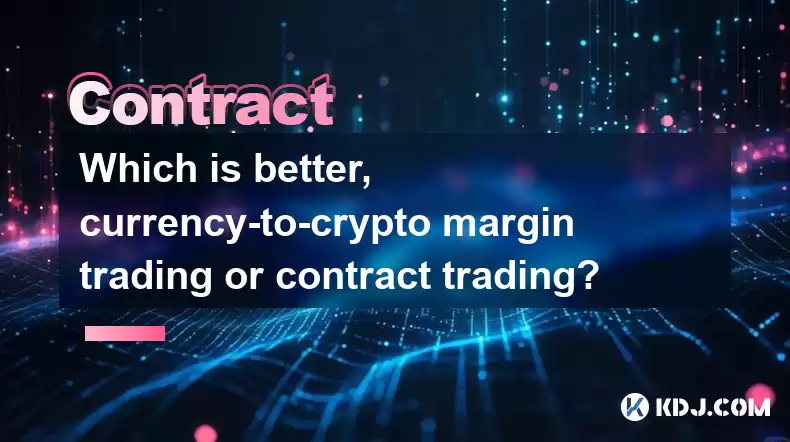
Unveiling the Superiority of Currency-to-Crypto Margin Trading over Contract Trading
In the realm of blockchain-based financial instruments, currency-to-crypto margin trading and contract trading emerge as distinct options for traders. Understanding their nuances is paramount to discerning which approach aligns better with an individual's trading objectives and risk tolerance.
Delving into Currency-to-Crypto Margin Trading
- Leverage: A Double-Edged Sword
Currency-to-crypto margin trading grants traders the ability to amplify their potential returns through leverage. By borrowing funds from the trading platform, traders can open positions larger than their account balance, effectively increasing their exposure to market movements. However, it is crucial to recognize that leverage can exacerbate both gains and losses, potentially resulting in substantial capital erosion if market conditions turn adverse.
- Trading Flexibility: A Vast Pool of Opportunities
Margin trading offers unparalleled flexibility, allowing traders to express their views on a wide array of cryptocurrencies. From established market leaders like Bitcoin (BTC) and Ethereum (ETH) to emerging altcoins, the choices are virtually limitless. This flexibility empowers traders to diversify their portfolios and potentially mitigate risks associated with concentrating exposure to a single asset.
- Hedging: A Buffer Against Market Volatility
Currency-to-crypto margin trading can be employed strategically as a hedging mechanism. By taking opposing positions in correlated or inverse assets, traders can potentially reduce the overall volatility of their portfolio, effectively cushioning the impact of adverse market events. This approach requires careful analysis and risk management to ensure hedging effectiveness.
Exploring Contract Trading
- Futures Contracts: Minimizing Counterparty Risk
Futures contracts, a type of derivative, provide a standardized framework for trading cryptocurrencies at a predetermined price and date in the future. This eliminates the counterparty risk associated with traditional spot trading, where transactions involve direct exchange between buyers and sellers. The centralized nature of futures exchanges offers enhanced security and transparency, ensuring fair trade execution.
- Leveraged Positions: Harnessing Volatility
Similar to margin trading, futures contracts allow traders to leverage their positions, magnifying potential gains while also amplifying risk. The market volatility inherent in cryptocurrency markets provides opportunities for traders to capitalize on short-term price movements, employing leveraged strategies to enhance profitability. However, the potential for significant losses underscores the importance of robust risk management practices.
- Short-Selling: Profiting from Price Declines
Contract trading offers the unique ability to engage in short-selling, a strategy where traders profit from declining asset prices. By selling a futures contract and simultaneously buying it back at a lower price, traders can potentially capitalize on downtrends. This approach introduces additional complexity and risk but can be rewarding if executed skillfully.
Determining the Superior Option: Navigating Personal Preferences and Risk Tolerance
The choice between currency-to-crypto margin trading and contract trading hinges on individual preferences, risk tolerance, and trading objectives. Margin trading provides greater flexibility but entails higher risk, while contract trading offers standardized contracts, centralized execution, and the ability to short-sell.
- Margin Trading: A Suitability Assessment
Suitable for experienced traders comfortable with leverage and managing risk, currency-to-crypto margin trading offers the potential for amplified returns. However, it is crucial to approach this strategy with caution, implementing robust risk management measures to mitigate potential losses.
- Contract Trading: A Viable Option for Risk-Averse Traders
Contract trading presents a viable option for less risk-tolerant traders or those seeking a standardized and secure trading environment. The ability to employ leverage in futures contracts can enhance profitability, but it is essential to approach this approach with caution, recognizing the potential for substantial losses.
Disclaimer:info@kdj.com
The information provided is not trading advice. kdj.com does not assume any responsibility for any investments made based on the information provided in this article. Cryptocurrencies are highly volatile and it is highly recommended that you invest with caution after thorough research!
If you believe that the content used on this website infringes your copyright, please contact us immediately (info@kdj.com) and we will delete it promptly.
- Dogecoin, Presale, Surge: Riding the Meme Coin Wave
- 2025-08-12 11:10:12
- Dogecoin, Tron, and the ROI Reality Check: What's a Crypto Investor to Do?
- 2025-08-12 11:15:12
- Ethereum Layer-2 Scaling Competition Heats Up as ETH Breaks $4K
- 2025-08-12 10:30:12
- China Regulation, Stablecoins, and BNB Presale: Navigating the Crypto Landscape
- 2025-08-12 11:30:12
- Meme Coins, Investment, and Token Burns: What's Hot in 2025?
- 2025-08-12 10:30:12
- BlockDAG, Chainlink, Hedera: The Cryptos Enterprises are Eyeing
- 2025-08-12 09:30:12
Related knowledge
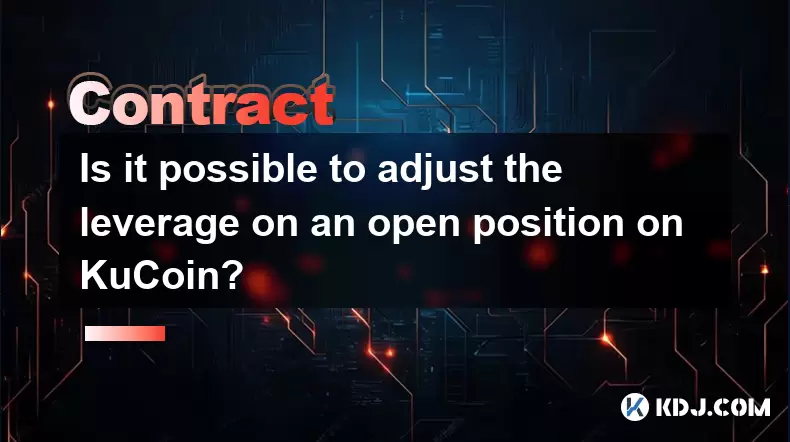
Is it possible to adjust the leverage on an open position on KuCoin?
Aug 09,2025 at 08:21pm
Understanding Leverage in KuCoin Futures TradingLeverage in KuCoin Futures allows traders to amplify their exposure to price movements by borrowing fu...

What cryptocurrencies are supported as collateral on KuCoin Futures?
Aug 11,2025 at 04:21am
Overview of KuCoin Futures and Collateral MechanismKuCoin Futures is a derivatives trading platform that allows users to trade perpetual and delivery ...
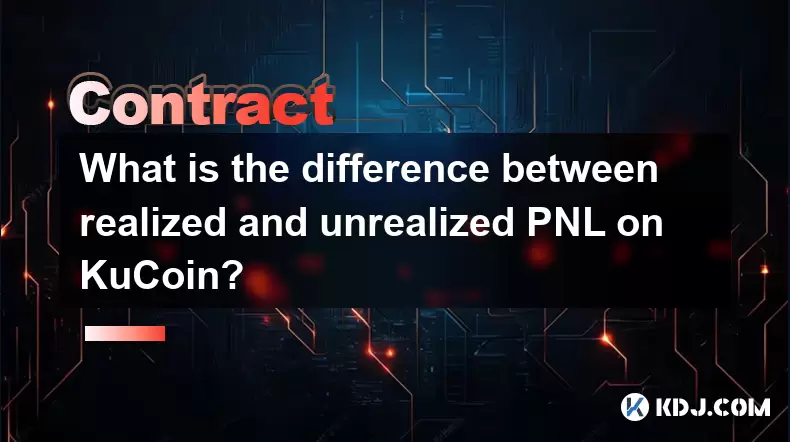
What is the difference between realized and unrealized PNL on KuCoin?
Aug 09,2025 at 01:49am
Understanding Realized and Unrealized PNL on KuCoinWhen trading on KuCoin, especially in futures and perpetual contracts, understanding the distinctio...

How does KuCoin Futures compare against Binance Futures in terms of features?
Aug 09,2025 at 03:22am
Trading Interface and User ExperienceThe trading interface is a critical component when comparing KuCoin Futures and Binance Futures, as it directly i...
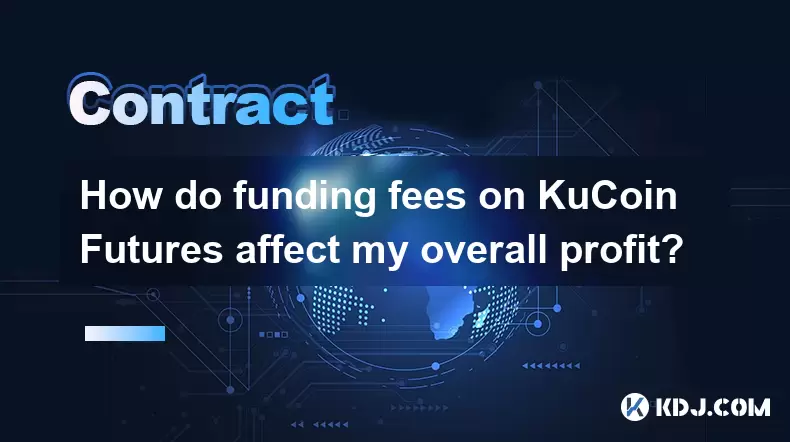
How do funding fees on KuCoin Futures affect my overall profit?
Aug 09,2025 at 08:22am
Understanding Funding Fees on KuCoin FuturesFunding fees on KuCoin Futures are periodic payments exchanged between long and short position holders to ...
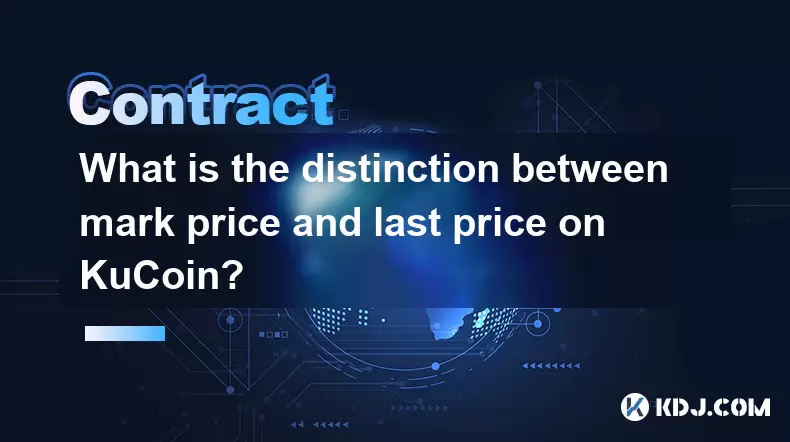
What is the distinction between mark price and last price on KuCoin?
Aug 08,2025 at 01:58pm
Understanding the Basics of Price in Cryptocurrency TradingIn cryptocurrency exchanges like KuCoin, two key price indicators frequently appear on trad...

Is it possible to adjust the leverage on an open position on KuCoin?
Aug 09,2025 at 08:21pm
Understanding Leverage in KuCoin Futures TradingLeverage in KuCoin Futures allows traders to amplify their exposure to price movements by borrowing fu...

What cryptocurrencies are supported as collateral on KuCoin Futures?
Aug 11,2025 at 04:21am
Overview of KuCoin Futures and Collateral MechanismKuCoin Futures is a derivatives trading platform that allows users to trade perpetual and delivery ...

What is the difference between realized and unrealized PNL on KuCoin?
Aug 09,2025 at 01:49am
Understanding Realized and Unrealized PNL on KuCoinWhen trading on KuCoin, especially in futures and perpetual contracts, understanding the distinctio...

How does KuCoin Futures compare against Binance Futures in terms of features?
Aug 09,2025 at 03:22am
Trading Interface and User ExperienceThe trading interface is a critical component when comparing KuCoin Futures and Binance Futures, as it directly i...

How do funding fees on KuCoin Futures affect my overall profit?
Aug 09,2025 at 08:22am
Understanding Funding Fees on KuCoin FuturesFunding fees on KuCoin Futures are periodic payments exchanged between long and short position holders to ...

What is the distinction between mark price and last price on KuCoin?
Aug 08,2025 at 01:58pm
Understanding the Basics of Price in Cryptocurrency TradingIn cryptocurrency exchanges like KuCoin, two key price indicators frequently appear on trad...
See all articles

























































































